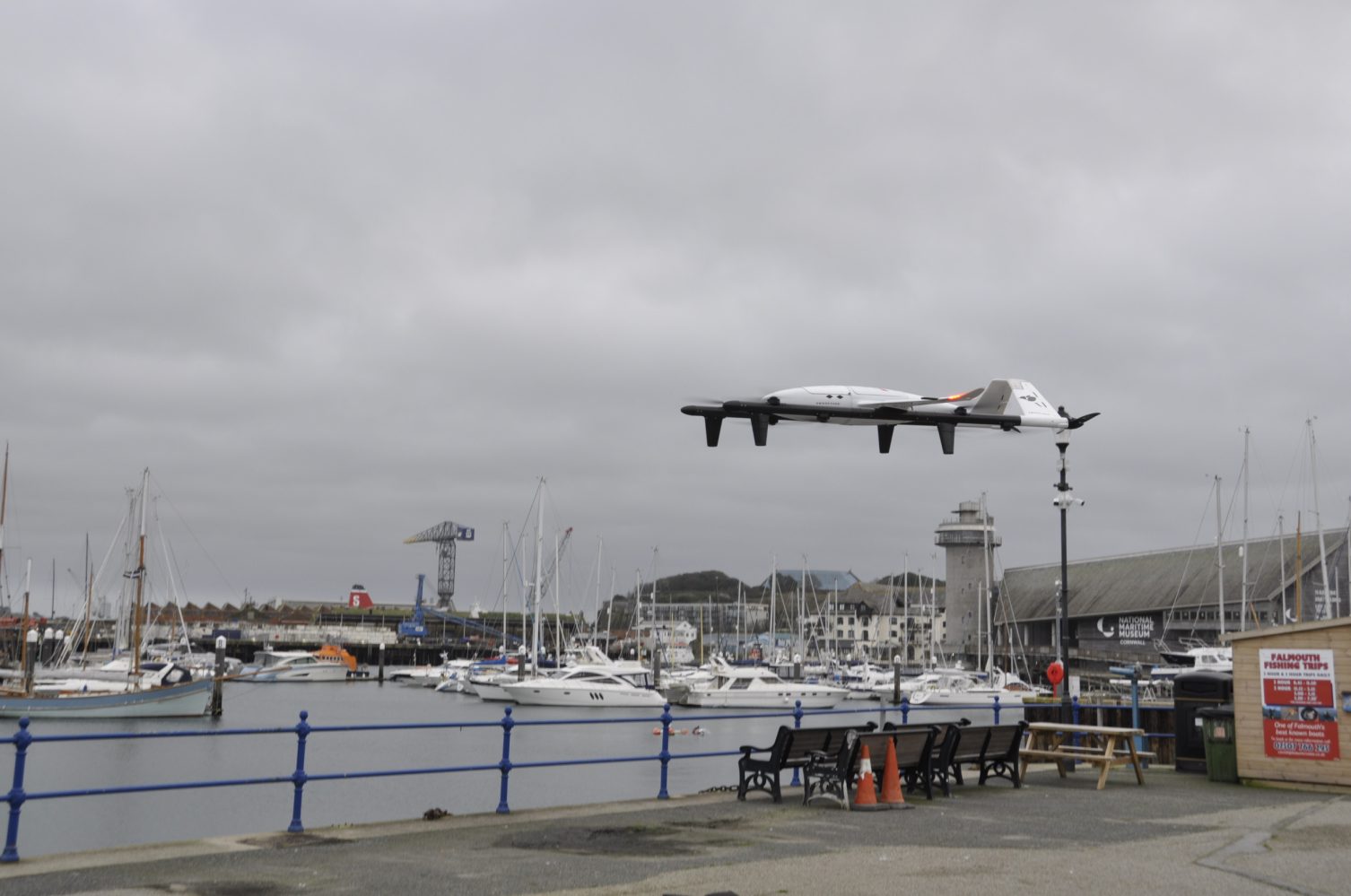
A barrage of aerial and ground infrastructure trials have been held this month by the UK’s Open Skies Cornwall consortium, which is seeking to organize airspace into which regular UAV activities – including ship-to-shore operations – can be integrated above and around Falmouth Harbour, and enable future ship-to-shore and other operations.
The activity is part of Open Skies Cornwall’s year-old effort to work towards the launch of live UAV services as a regular feature of Falmouth Harbour airspace. The effort is backed by nearly $3 million in funding from the UK Research and Innovation’s Future Flight Challenge project, which promotes a range of emerging aviation tech and applications. The most recent preparations in that tested previously designated landing areas, and visited other potential spots within selected coastal flight corridors.
Sorties conducted by Open Skies Cornwall over land and the harbor area provided feedback and insight into future maritime-focused drone activities, including deliveries of emergency medical, food, bunker samples, and maintenance supplies. While the trials flew simulated routes to isolated inland communities and boats moored in Falmouth harbor, the project also aims to pilot UAVs to ships up to 50 miles offshore in the Atlantic Ocean and Celtic Sea, providing support to maritime workforces at sea.
Headed by UAV training and flight organizing company DronePrep, Open Skies Cornwall has been joined by drone delivery services and vertiport specialist Skyports, the UK’s National Health Service, Royal Mail, Cornwall Council, the military’s emergency relief unit, as well as operators of Falmouth Harbour.
“We’re pleased to have completed a successful round of ship-to-shore integration trials and have been delighted by the community’s positive engagement,” said Gareth Whatmore, CEO of DronePrep and project lead for Open Skies Cornwall. “Ship-to-shore flights offer huge potential to add value for Falmouth Harbour’s community, but it’s important we work closely with all stakeholders to ensure those innovations operate safely and integrate smoothly with existing infrastructure.”
The initial phase of the 15-month trial is slated to run through April. Work thus far has been sufficiently promising, however, that Falmouth Harbour CEO Miles Carden already foresees activity continuing at least through the year.
“The efficiency, safety and environmental benefits of using drones for commercial maritime activity are very exciting and could potentially drive significant additional economic value to Falmouth,” Carden said. “We hope to accelerate the planned tests and use today’s operations as a springboard for new activity right through 2024.”
FTC: We use income earning auto affiliate links. More.



Comments